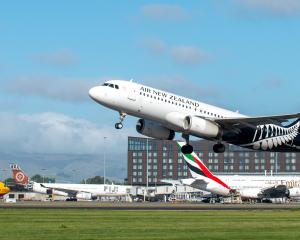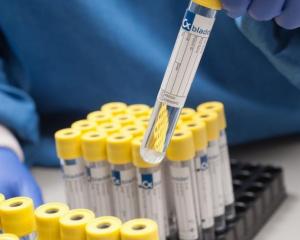
Yesterday, Covid-19 Response Minister Chris Hipkins and Associate Minister of Health Ayesha Verrall revealed a new exemption scheme aimed at keeping critical supply chains running during the Omicron outbreak.
During the peak of the variant’s outbreaks overseas, particularly in Australia, isolation periods for contacts have put a strain on businesses’ operations while many staff were away from work.
That sparked warnings to the Government from business groups in New Zealand to avoid the same happening here.
From yesterday, businesses were allowed to register as a "critical service", allowing their workers to skip Covid-19 isolation requirements as long as they return daily negative rapid antigen tests (Rats).
Companies could "self-assess" to participate in the scheme as long as they met the criteria.
The Government listed sectors such as food production, emergency services, power and water supplies, critical financial services and news media.
Eligible workers would have to be vaccinated and would be provided testing kits by their employer or would be able to pick them up from a collection site.
If they returned a positive result, they would still have to take a PCR test and isolate.
Workers would also still be subject to the isolation requirements outside work hours.
The Government also announced yesterday the guidelines for people who either worked alone, or had the capacity to do so.
Those workers would be able to continue operating in a "bubble of one" if they were identified as a contact, Mr Hipkins said.
That meant, for example, farmers, sole traders including plumbers or builders, who operated in their own space and worked alone could continue to do so as long as they were vaccinated, did not have symptoms and did not have contact with anyone else.
Those guidelines applied to any workers, not just critical work, and did not require them to return regular tests.
The scheme will come into effect when New Zealand moves into phase two of the Government’s Omicron response.
National Covid-19 spokesman Chris Bishop called the exemption scheme "the most bureaucratic and tedious system imaginable for businesses".
“Workers will have to have a Critical Services Register Letter, a Critical Worker Authorisation Letter, a workplace ID, personal ID, a text message confirming they are a close contact, and a Rat order number.
"There will probably be more bureaucrats administering the system than employees who can access it."
The Government had got things around the wrong way, he said.
"Every business should be able to access rapid tests and every business should be able to have their employees who are close contacts use Rats to return to work, not just ones deemed ‘critical’ by the Government.











